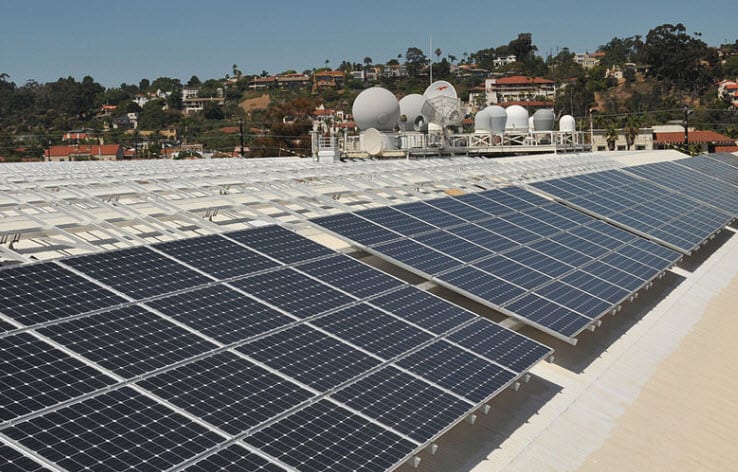Japan to create solar panel recycling rules
July 9, 2015The growing solar energy industry needs a future recycling plan.
While most would agree that the growing adoption of solar energy is a positive step in the right direction away from fossil fuels, not everyone has stopped to consider that once a solar panel reaches the end of its lifespan, it ends up as waste in a landfill, which could become a serious environmental problem in the future if an effective solar panel recycling method isn’t put into place. In an effort to help prevent future PV (photovoltaic) panel waste problems, Japan will soon implement recycling rules for solar modules.
800,000 tons of PV modules could end up in landfills by 2040.
By 2040, solar panels that have been installed since the start of the FiT (feed-in tariff), which was introduced in Japan back in 2012, will begin to approach the end of their expected lifespan. The average lifespan of PV panels is about 25 years in the field.
According to the calculations of a working group assembled by Japan’s Environment Ministry, by 2040, nearly 800,000 tons of solar modules could be filling landfill sites. This build up would begin with 3,000 tons in five years and 30,000 tons by 2030.
PV-Tech reported that the study group said that the expense resulting from having to remove PV panels from landfills would be more costly than the economic benefits of the energy resources attained throughout the lifetimes of these panels. That being said, the group suggested that this issue could be prevented with the right recycling system.
New solar panel recycling measures will be implemented before this fiscal year comes to an end.
The primary component of a solar panel is glass, which is responsible for about 70% of the panel’s weight. However, the parts of the panel that have greater value, such as the copper and silver components, could be salvaged via a process known as smelting. According to the group, the value of the metals that are recovered can vary dramatically.
Although these metals have value, one of the main issues with the PV panels is that they typically contain lead and selenium; two materials considered to be hazardous to the environment. The group said that to aid in future solar panel recycling, domestic manufacturers should be encouraged to seek out manufacturing processes that use less selenium or lead and that are friendlier to the environment.
Japan’s Environment Ministry stated that along with the Ministry of Trade, Economy and Industry (METI), and industry organizations, before the end of this fiscal year, March 2016, it will start to apply measures for “removal, transportation and processing of solar power generation equipment.”

 With over 15 years of reporting hydrogen news, we are your premier source for the latest updates and insights in hydrogen and renewable energy.
With over 15 years of reporting hydrogen news, we are your premier source for the latest updates and insights in hydrogen and renewable energy.